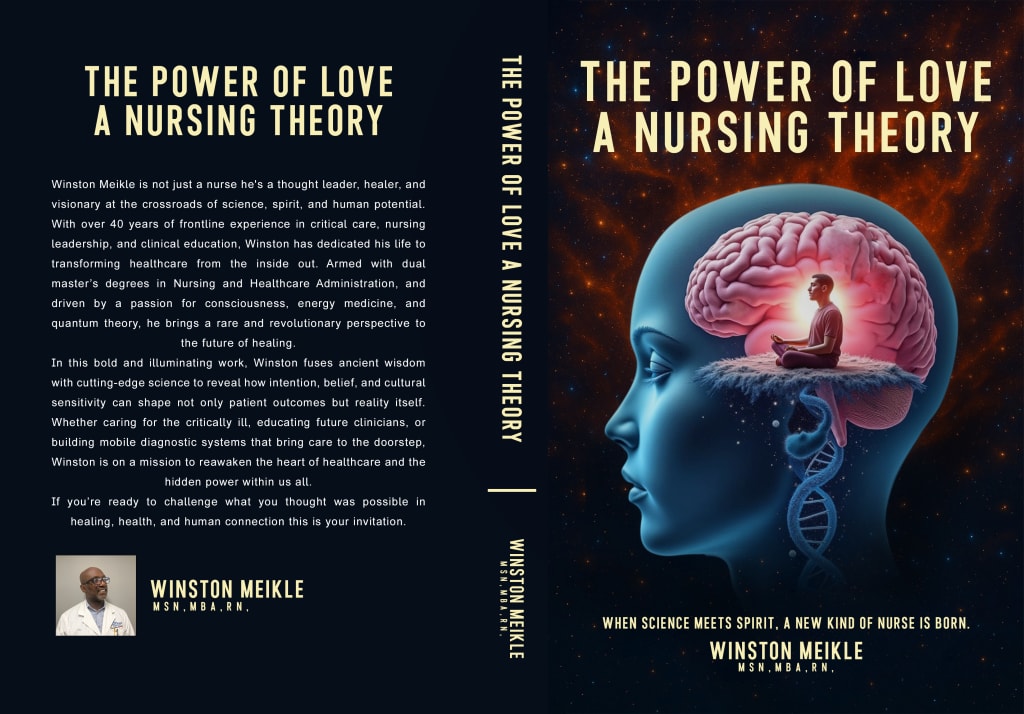In his groundbreaking book, The Power of Love: A New Nursing Theory, author Winston Meikle challenges us to rethink what it truly means to heal. He argues that nursing is so much more than just giving meds or following procedures. Instead, Meikle introduces a fascinating model that weaves together modern physics, biology, and cognitive science to show how a nurse’s presence and intentions are powerful tools that can directly influence a patient’s health.
The Science of Connection
Meikle’s ideas are deeply rooted in the world of quantum mechanics, specifically the work of physicist Anton Zeilinger. Zeilinger’s research on entanglement proved that the very act of observing a system can change its state. Meikle takes this concept and applies it to the nursing profession, proposing that when a nurse is with a patient, their own emotions and thoughts become part of a shared field that can actively shape the patient’s physical and psychological well being. In this light, a nurse isn’t just a caregiver; they become an active participant in the healing process itself.
This approach is a significant departure from older medical models. While historical figures like Niels Bohr acknowledged uncertainty in physics, Meikle’s framework takes it a step further. He uses Zeilinger’s integrated research to propose a healthcare system where consciousness isn’t an abstract concept but a measurable part of the clinical equation.
Intentional Care and Measurable Results
The book isn’t just about theory; it’s backed by solid research. Meikle cites studies on mindfulness based stress reduction, heart brain synchronization, and immune modulation that all show how intentional, compassionate care produces real, tangible benefits. Compassionate interactions have been shown to lower cortisol levels, strengthen the immune system, and speed up recovery times. For example, one study mentioned in the book found that patients cared for by nurses trained in mindful communication reported a 25% decrease in their anxiety levels.
This has major implications for how we train future nurses. Meikle advocates for an educational approach that goes beyond technical skills. He suggests a curriculum that includes things like focused observation, where attention itself is a clinical skill, and resonant communication, which teaches nurses how to use their tone and body language as interventions. The book also touches on epigenetics, the idea that our environment can change how our genes are expressed. This means that when nurses create a calm and safe space, they are contributing to their patient’s health on a biological level.
Love as a Clinical Competency
Meikle’s vision for the future of nursing is incredibly practical. He envisions nursing labs where students practice both procedures and what he calls coherence based interventions. Techniques like guided imagery and heart focused breathing are treated as clinical skills with measurable outcomes.
He is careful to position his theory within a scientific context, citing peer reviewed research to show that energy and information are fundamental to physical systems. By doing this, he grounds his theory in testable science, rather than just philosophy. Ultimately, The Power of Love proposes a profound shift: nurses aren’t just passive providers of treatment, but active co creators of healing. It’s a call to merge scientific knowledge with the subtle but powerful impact of genuine human connection.

